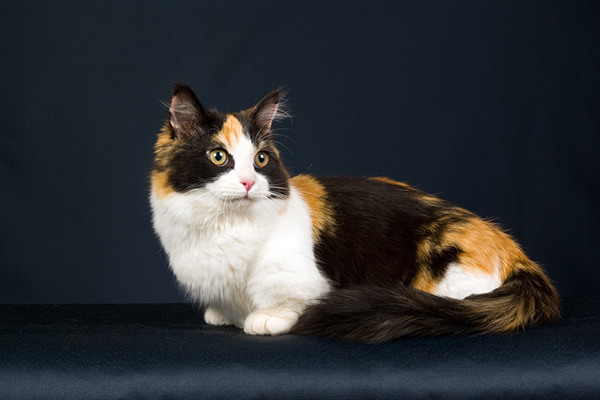Many people love the charm and playfulness of kittens. However, their size and personality change significantly as kittens grow into adulthood. So, if you’re looking for a cat that stays small and retains that irresistible kitten-like quality throughout their life, several cats fit the bill. Read on to find one that will perfectly suit your household.
The 18 Small Cat Breeds That Stay Small & Kitten-Like
1. Singapura
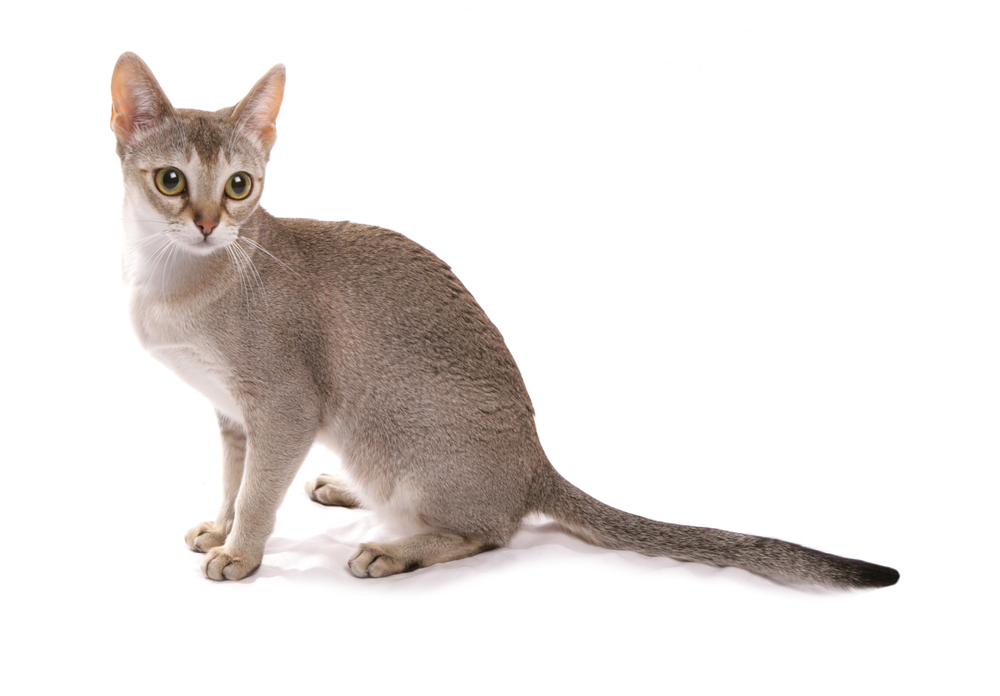
| Average Weight: | 4–8 pounds |
The Singapura is a small cat with a lively and curious nature. They have a muscular yet delicate build, large eyes and ears, and a short, ticked coat. Owners love them for their playful and affectionate personality. Despite their small size, they are energetic and curious and love exploring their surroundings.
2. Munchkin
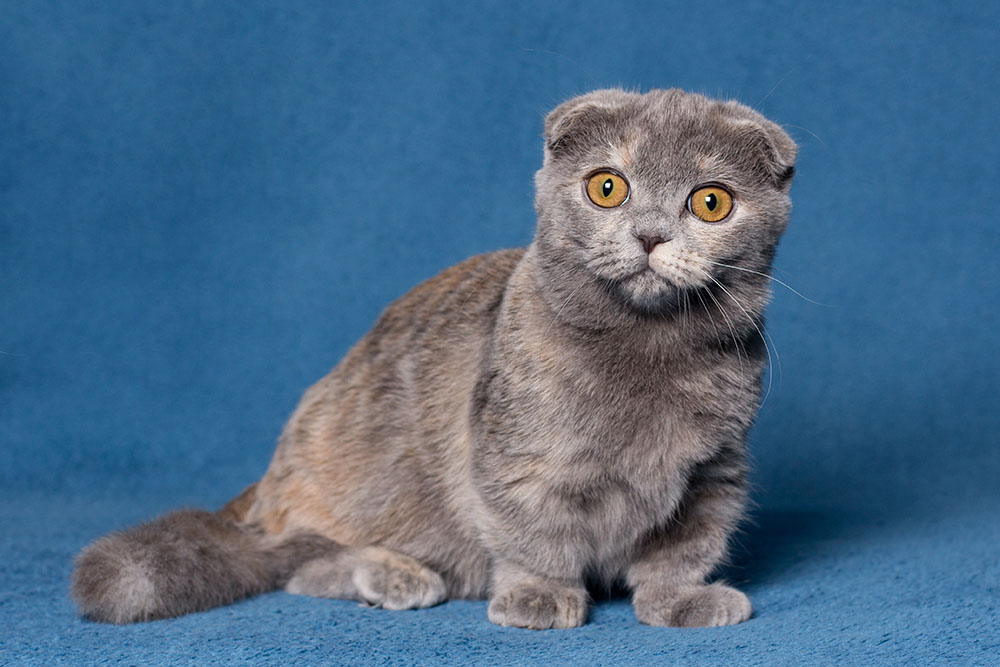
| Average Weight: | 5–9 pounds |
Munchkins are so tiny because they have short legs, which give them a distinct appearance. These mini cats can have various coat lengths and patterns and are playful and friendly, making them popular with cat owners. Despite their small stature, they are exceptionally agile and adaptable, making them an excellent choice for small apartments.
3. Cornish Rex
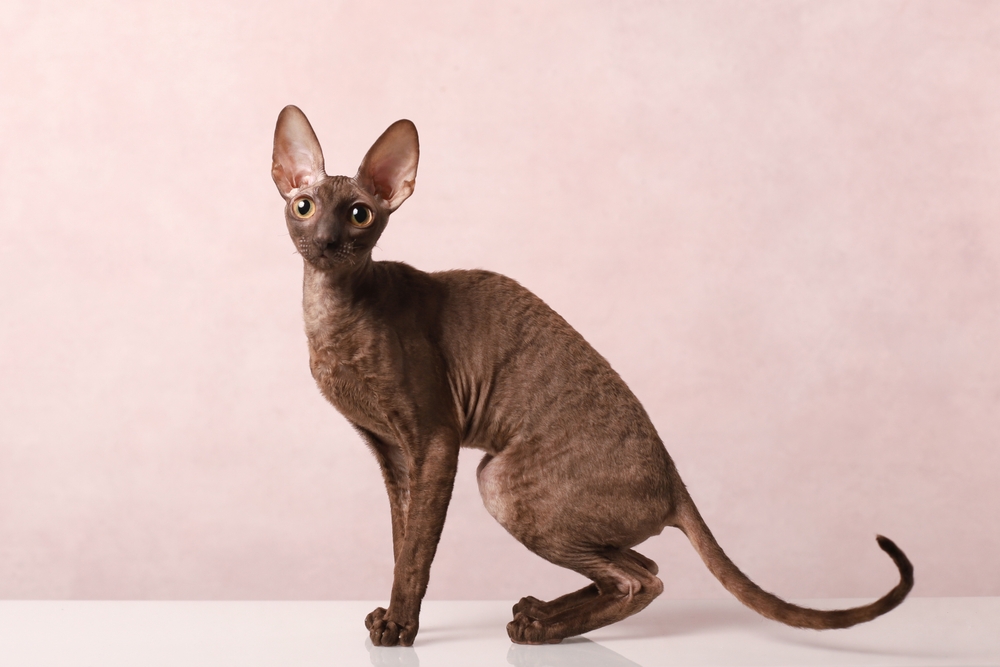
| Average Weight: | 6–10 pounds |
The Cornish Rex cat has a unique appearance with their slender body, long legs, and curly or wavy coat. Their soft and fine fur makes them appear delicate, but they are active, playful, and well-suited to large and small families. Cornish Rex cats are intelligent, enjoy interactive play, and form strong bonds with their human companions.
4. Devon Rex
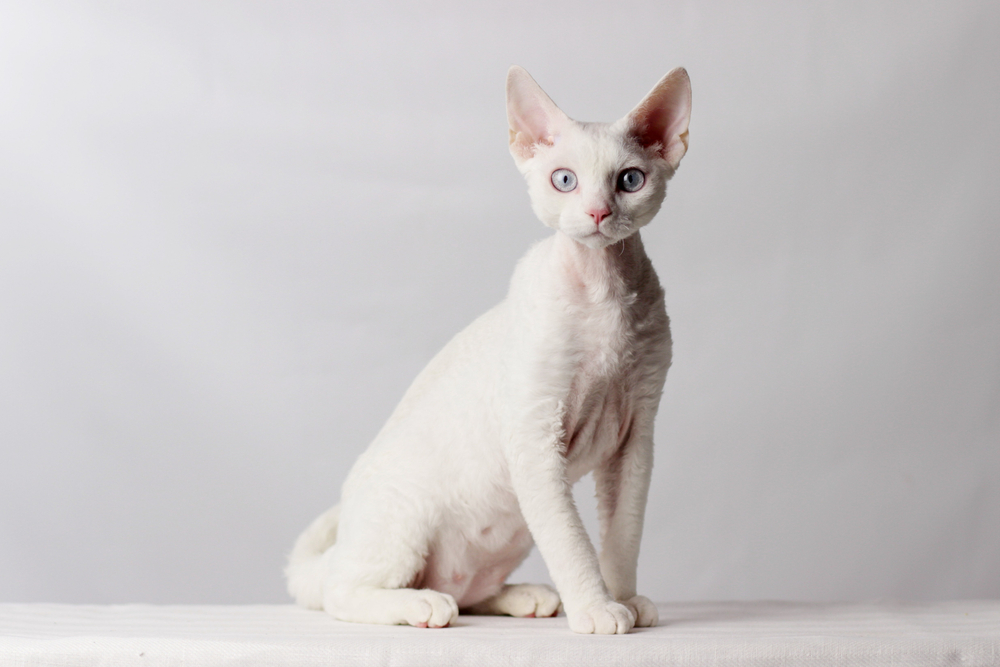
| Average Weight: | 6–9 pounds |
The Devon Rex cat also has a wavy or curly coat, but their appearance differs from that of a Cornish Rex cat. They have large eyes, prominent cheekbones, and a slender body with a playful, mischievous, and affectionate nature. They enjoy being the center of attention and are highly sociable, so they are a great choice for families with children.
5. American Curl
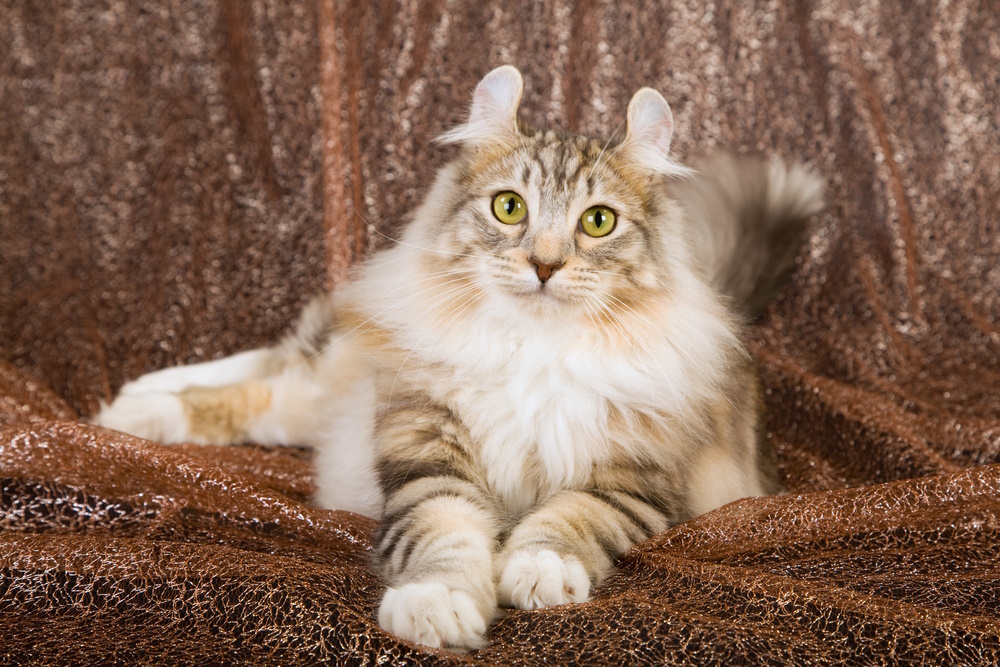
| Average Weight: | 5–10 pounds |
It’s easy to spot an American Curl due to their unique curled ears, which give them an endearing and distinctive look. They are moderately muscular and come in various coat lengths and colors.
They are friendly and curious, enjoy being part of the family, and are known for their intelligence and adaptability. American Curls are ideal pets for older owners.
6. Scottish Fold
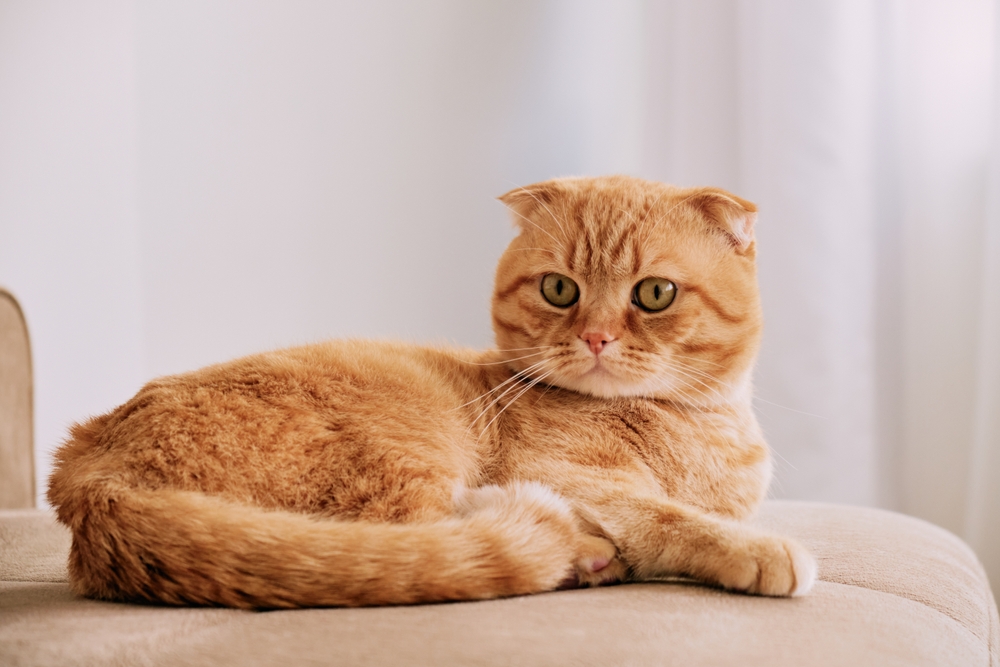
| Average Weight: | 6–13 pounds |
The Scottish Fold is known for their adorable, folded ears, which give them a sweet and expressive look. They have a round face, round eyes, and a stocky body. Scottish Folds are gentle and calm, and they get along well with other pets and children, so they are ideal for any family. T
They are affectionate and enjoy being close to their humans. Scottish Folds stay kitten-like well into adulthood, which helps make them popular among pet owners.
7. Burmese
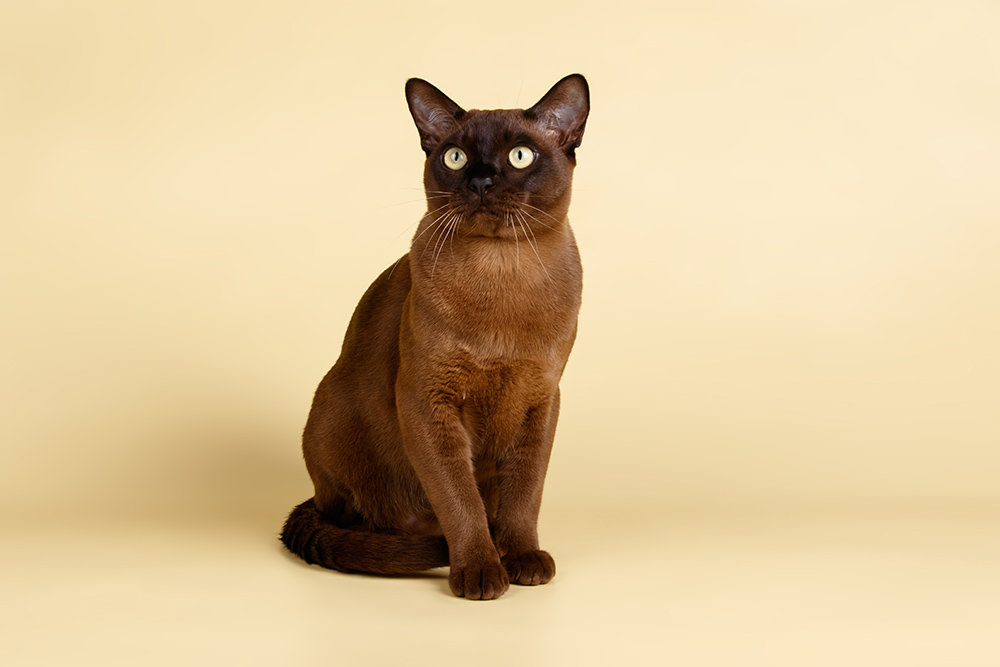
| Average Weight: | 8–12 pounds |
The Burmese cat has a compact and muscular body, a round head, and expressive eyes, which makes them appear more kitten-like. They have sleek and short coats that can come in various colors, and they are friendly and affectionate and love being around their human companions. They have a playful nature and often carry that energy into adulthood.
8. Abyssinian
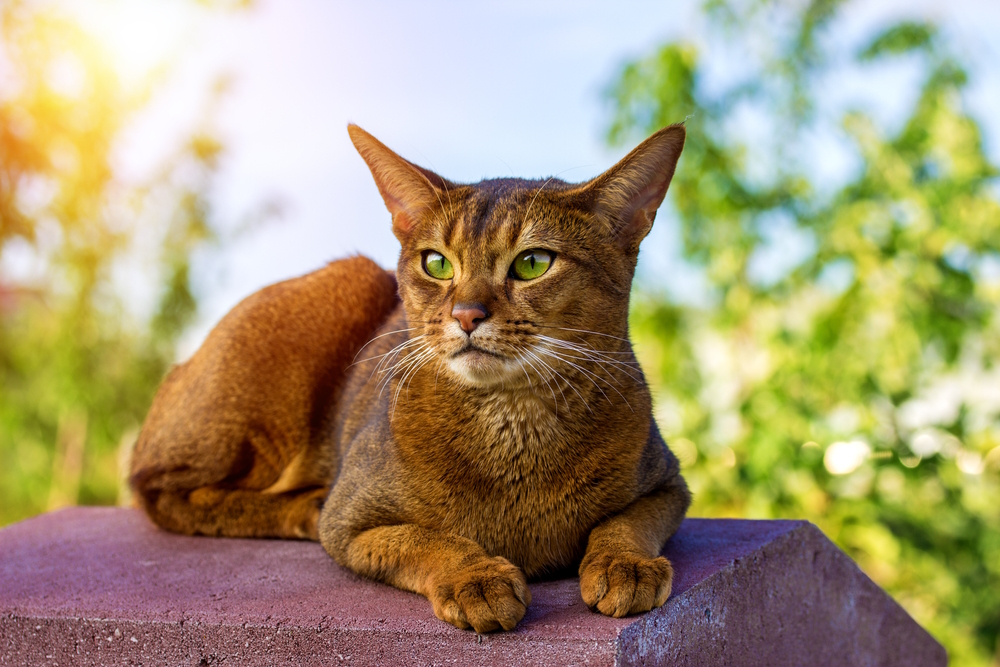
| Average Weight: | 6–10 pounds |
Abyssinian cats are slim and muscular. Their short, ticked coat gives them a wild and exotic appearance that many cat owners love. As active, curious, and intelligent cats, they enjoy interactive play and are known for their adventurous personalities.
9. Tonkinese
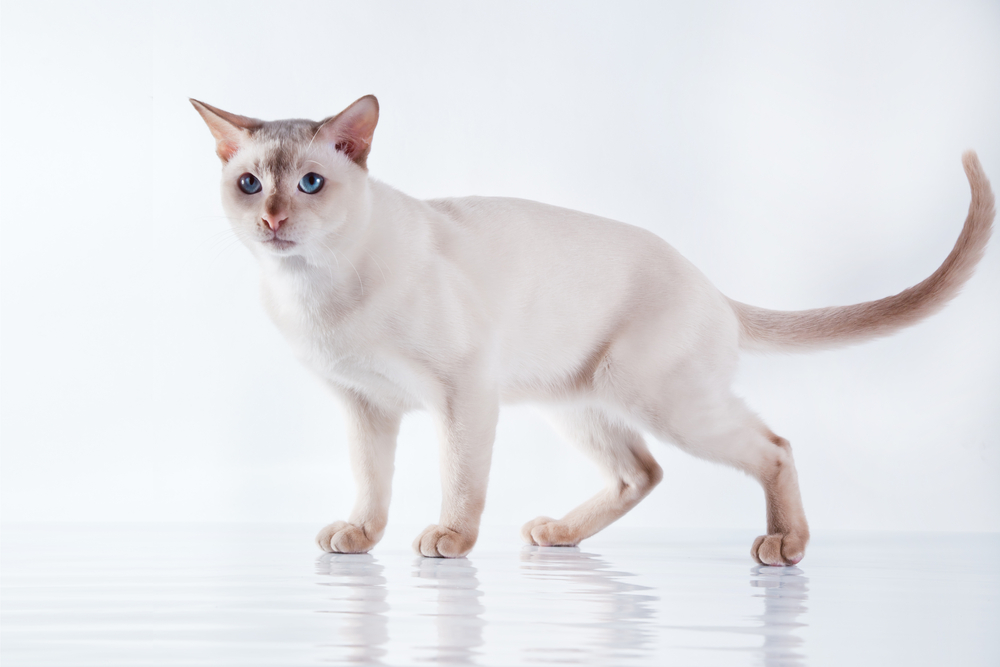
| Average Weight: | 6–12 pounds |
The Tonkinese cat has a compact body, a muscular build, and a short, silky coat that comes in various colors. They are highly sociable, affectionate, and intelligent, and they’re ideal for cat owners who enjoy training their pets to do tricks. Tonkinese cats often enjoy playing, exploring, and participating in family activities.
10. Havana Brown
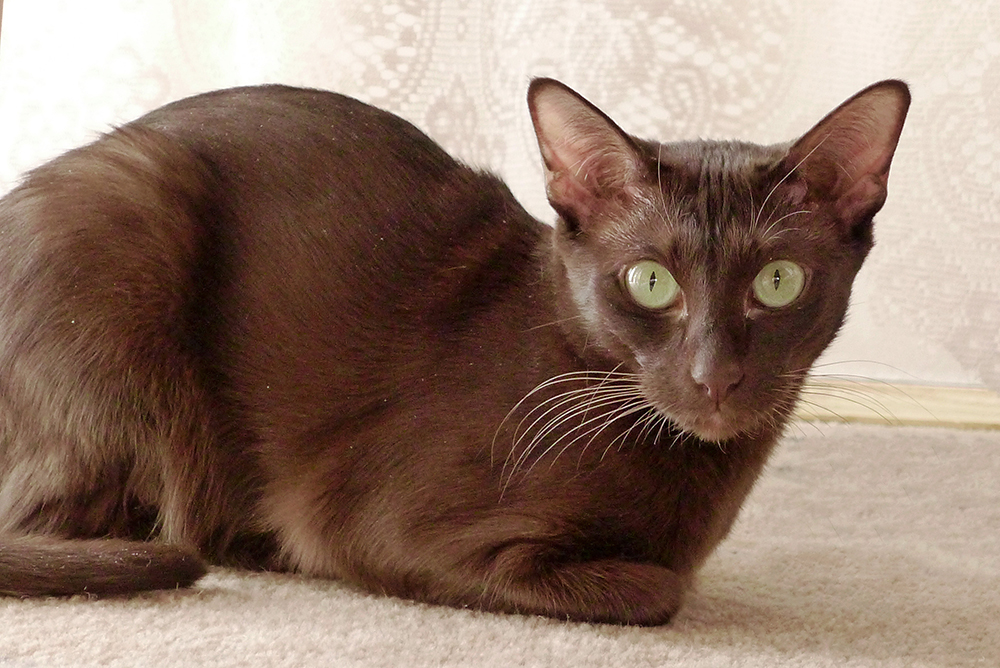
| Average Weight: | 6–10 pounds |
Havana Browns have sleek bodies, rich chocolate-brown coats, and striking green eyes. They also have playful and affectionate natures and form strong bonds with their human companions. Havana Browns enjoy interactive play and are known for their social and curious personalities. They also get along with other pets.
11. LaPerm
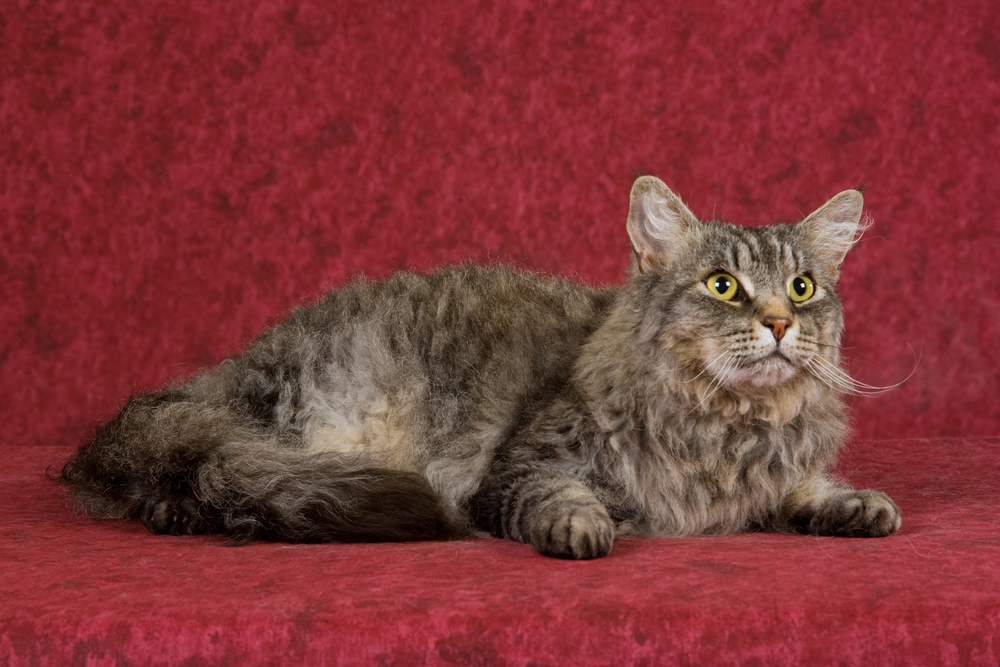
| Average Weight: | 6–10 pounds |
The LaPerm has a distinctive curly or wavy coat that can come in various lengths. They are playful and outgoing, enjoy interacting with their human companions and other pets, and frequently encourage play sessions with whoever is nearby. The LaPerm is known for their friendly and affectionate personality, and their unique coat adds to their kitten-like charm.
12. Japanese Bobtail
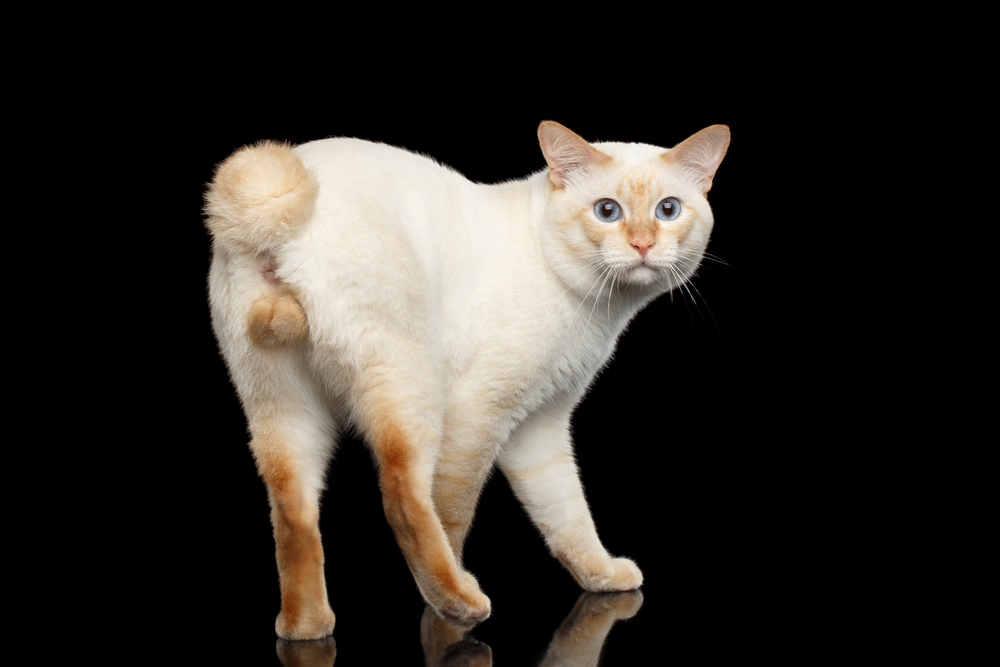
| Average Weight: | 6–10 pounds |
The Japanese Bobtail has a bobbed tail unique to the breed and an alert and expressive face with large, oval-shaped eyes. Japanese Bobtails are intelligent, sociable, and active cats that do well in any household.
They have a playful and energetic nature and are known for their agility and love of interactive toys, which can keep them entertained throughout the day.
13. European Burmese
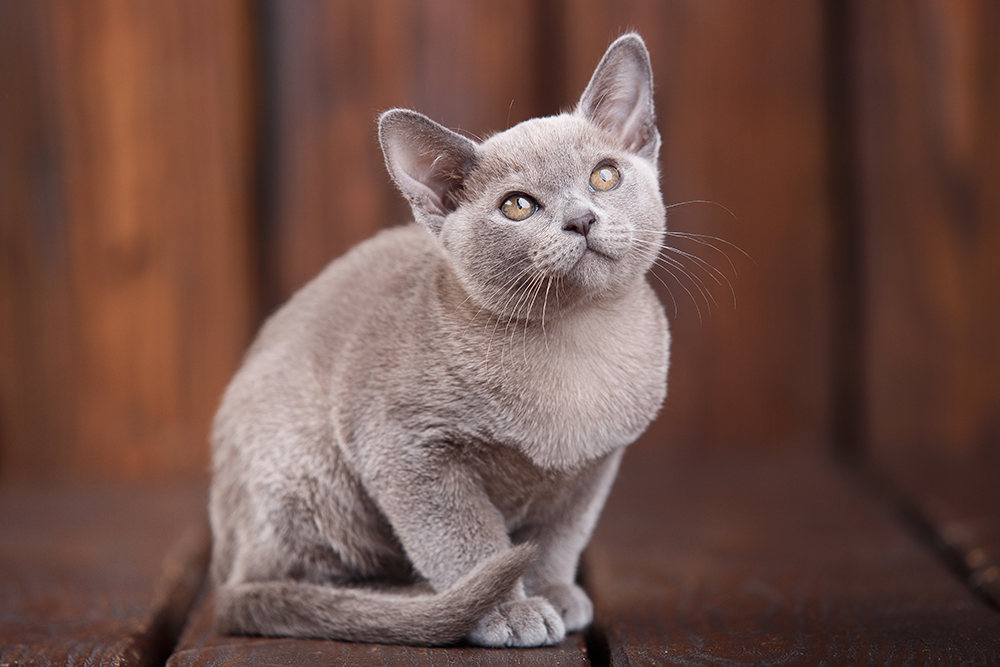
| Average Weight: | 7–12 pounds |
The European Burmese cat has a compact and muscular build. They have a short, glossy coat that is easy to maintain and comes in various colors. The European Burmese is friendly and playful and enjoys being the center of attention, so they are great for someone with plenty of free time. They are known for their playful and affectionate nature, retaining youthful kitten-like energy well into adulthood.
14. Russian Blue
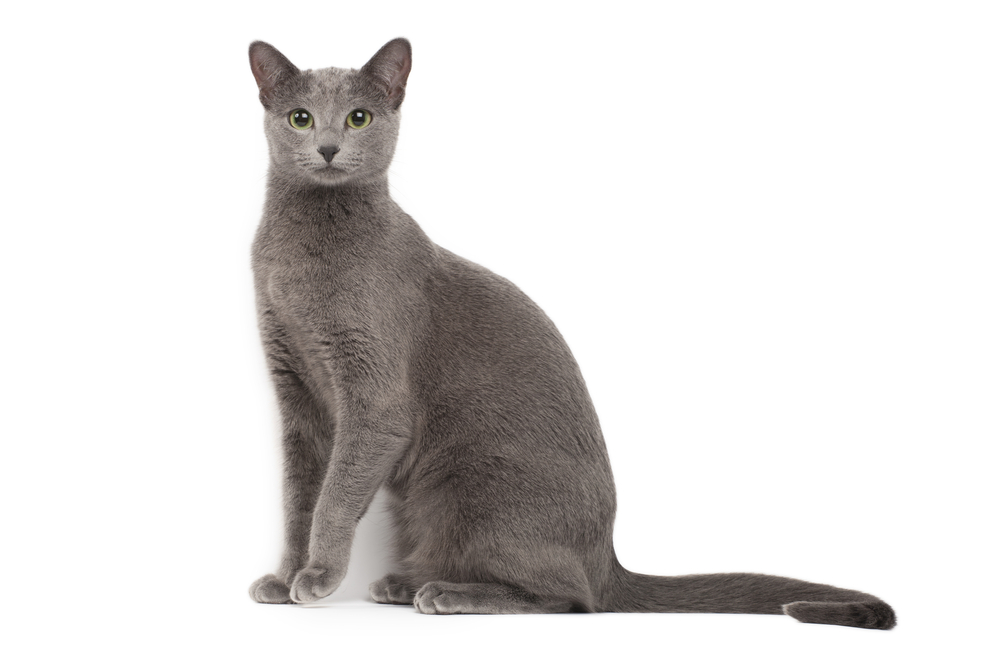
| Average Weight: | 7–12 pounds |
The Russian Blue has a graceful and slender build with a short, dense, plush double coat that appears bluish-gray and shimmers in the light. They are intelligent, gentle, and reserved cats that form strong bonds with their families and are known for their playful and kitten-like behavior.
15. Balinese
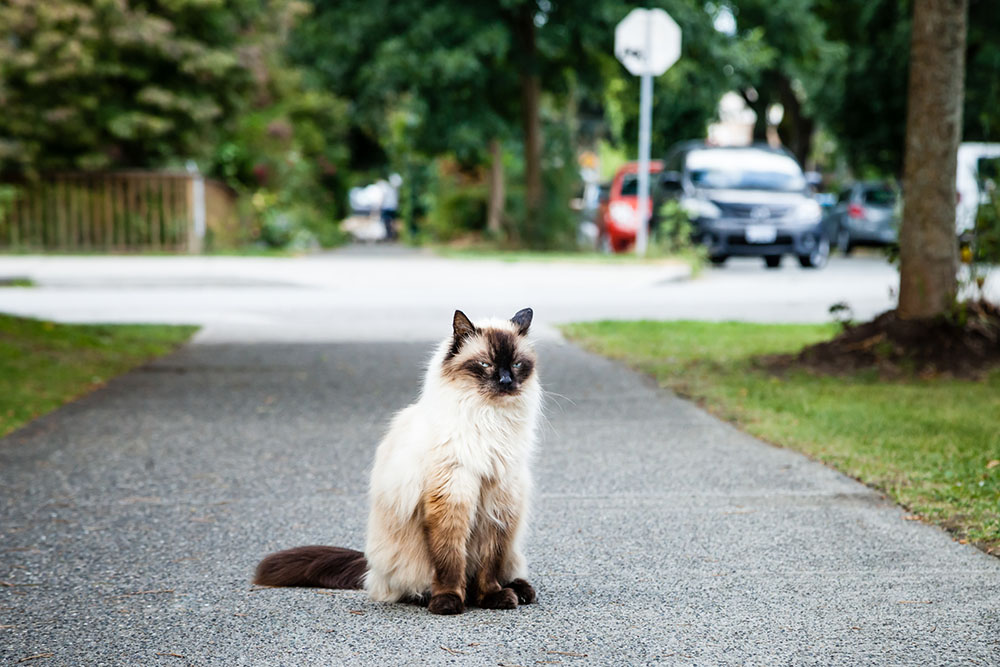
| Average Weight: | 6–11 pounds |
Balinese cats have silky, semi-long coats and striking blue eyes that many people go to great lengths to acquire. These cats are intelligent, affectionate, and known for their vocal nature, making them fun for children. They also have a playful and active personality and maintain their kitten-like curiosity well into adulthood.
16. Siamese
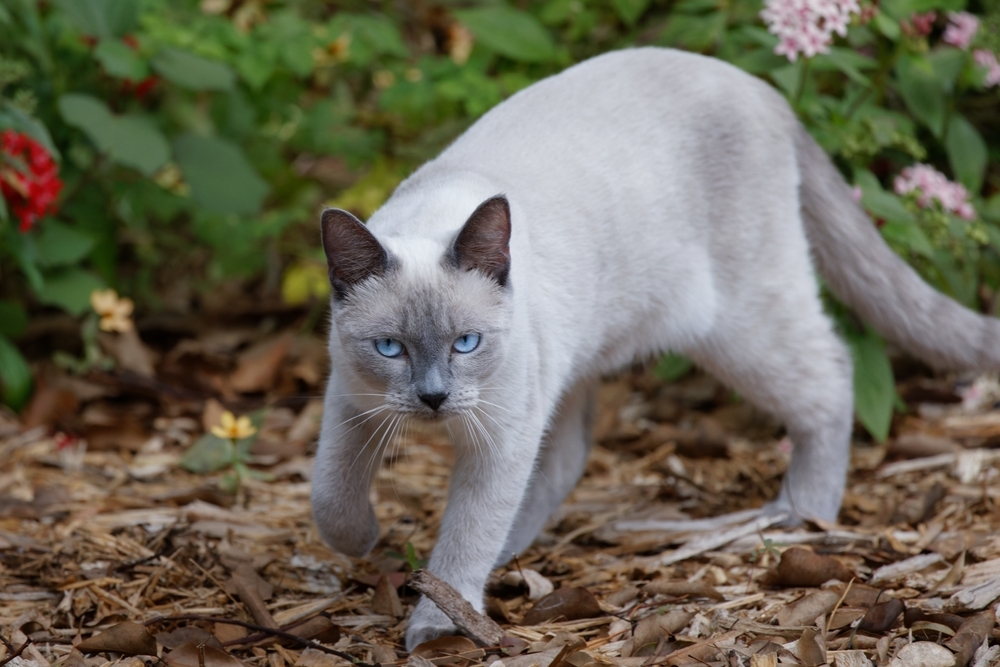
| Average Weight: | 6–12 pounds |
Siamese cats have slim and athletic bodies with striking blue almond-shaped eyes. These mini cats have short coats that come in various colors and patterns and are intelligent, vocal, and highly social. They are known for their extroverted and playful nature and will retain a youthful and kitten-like demeanor as they age. Siamese are ideal cats for families with young children.
17. Minuet Cat
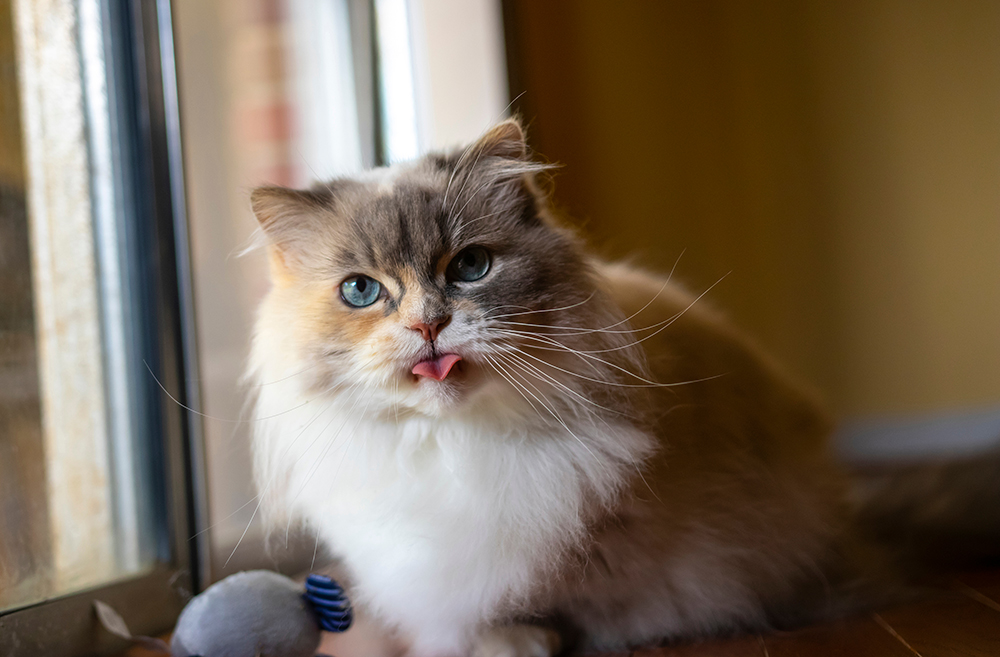
| Average Weight: | 6–9 pounds |
The Minuet cat has a sturdy and compact body. They inherit their short legs from their Munchkin parent and their long, luxurious coat from their Persian parent. They have a round head, expressive eyes, and a sweet facial expression that many pet owners seek out. They can come in various coat colors and patterns, including solid, tabby, and tortoiseshell.
18. Minskin
| Average Weight: | 4–9 pounds |
The Minskin has short legs, a hairless or semi-hairless coat, and a charming appearance. They are friendly, outgoing, and affectionate, and many owners describe them as kitten-like. They enjoy interactive play and are known for their social and people-oriented personalities, which makes them great for large families.
Conclusion
Quite a few breeds retain their kitten-like qualities throughout their lives. Some of the smallest include the Munchkin, Minuet, and Minskin, but all the cats we discussed usually stay relatively small. As they age, many breeds, such as the Balinese and Russian Blue, also retain their kitten-like personalities. However, each cat has a unique personality that might be more or less kitten-like, and it could change as they age and face different obstacles.
Featured Image Credit: Linn Currie, Shutterstock
Contents
- The 18 Small Cat Breeds That Stay Small & Kitten-Like
- 1. Singapura
- 2. Munchkin
- 3. Cornish Rex
- 4. Devon Rex
- 5. American Curl
- 6. Scottish Fold
- 7. Burmese
- 8. Abyssinian
- 9. Tonkinese
- 10. Havana Brown
- 11. LaPerm
- 12. Japanese Bobtail
- 13. European Burmese
- 14. Russian Blue
- 15. Balinese
- 16. Siamese
- 17. Minuet Cat
- 18. Minskin
- Conclusion

